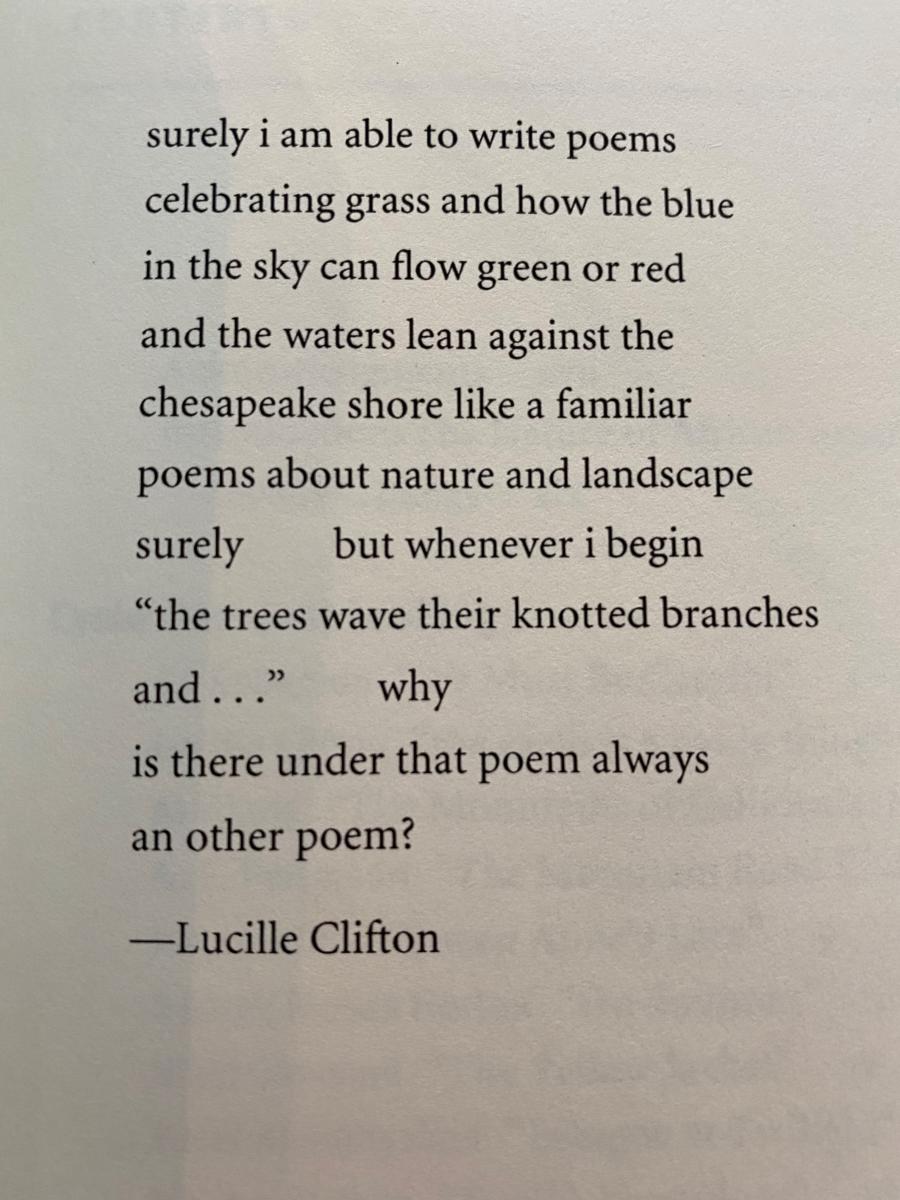Since the first time I opened Black Nature: Four Centuries of African American Nature Poetry, edited by Camille T. Dungy, I have been haunted by the Lucille Clifton poem that serves as the book's epigraph:

Today is Earth Day 2021: an Earth Day observed in a year of a devastating pandemic, historically violent wildfires, historic levels of protest against the violences of racism. Two days ago, on April 20, former police officer Derek Chauvin was found guilty of killing George Floyd. I can't breathe is the refrain of 2021, significant on many horrifying levels at once.
Under that poem there is an other poem. The terrifying events of 2020-2021 are linked in fundamental ways, just as we are linked within an ecosystem. As humans encroach into habitat, the chances of contact with wild animals grow and pathogens spread: COVID-19 is unlikely to be a once-in-a-lifetime pandemic. Public health is a matter of climate justice as well as prudence. Climate justice is also intertwined with racial justice and with decolonization. I think of Marshallese poet Kathy Jetn̄il-Kijiner's powerful poem "History Project," which investigates the aftereffects of U.S. nuclear testing on the Marshall Islands in the mid-twentieth century and lays bare the racism that made the testing possible:
I sift through political jargon
tables of nuclear weapons with names
like Operation Bravo
Crossroads
and Ivy
quotes from generals like
90,000 people are out there.
Who
cares?
Under that nature poem, an other poem. On this Earth Day, I wish for justice. For interconnection. For survival.

